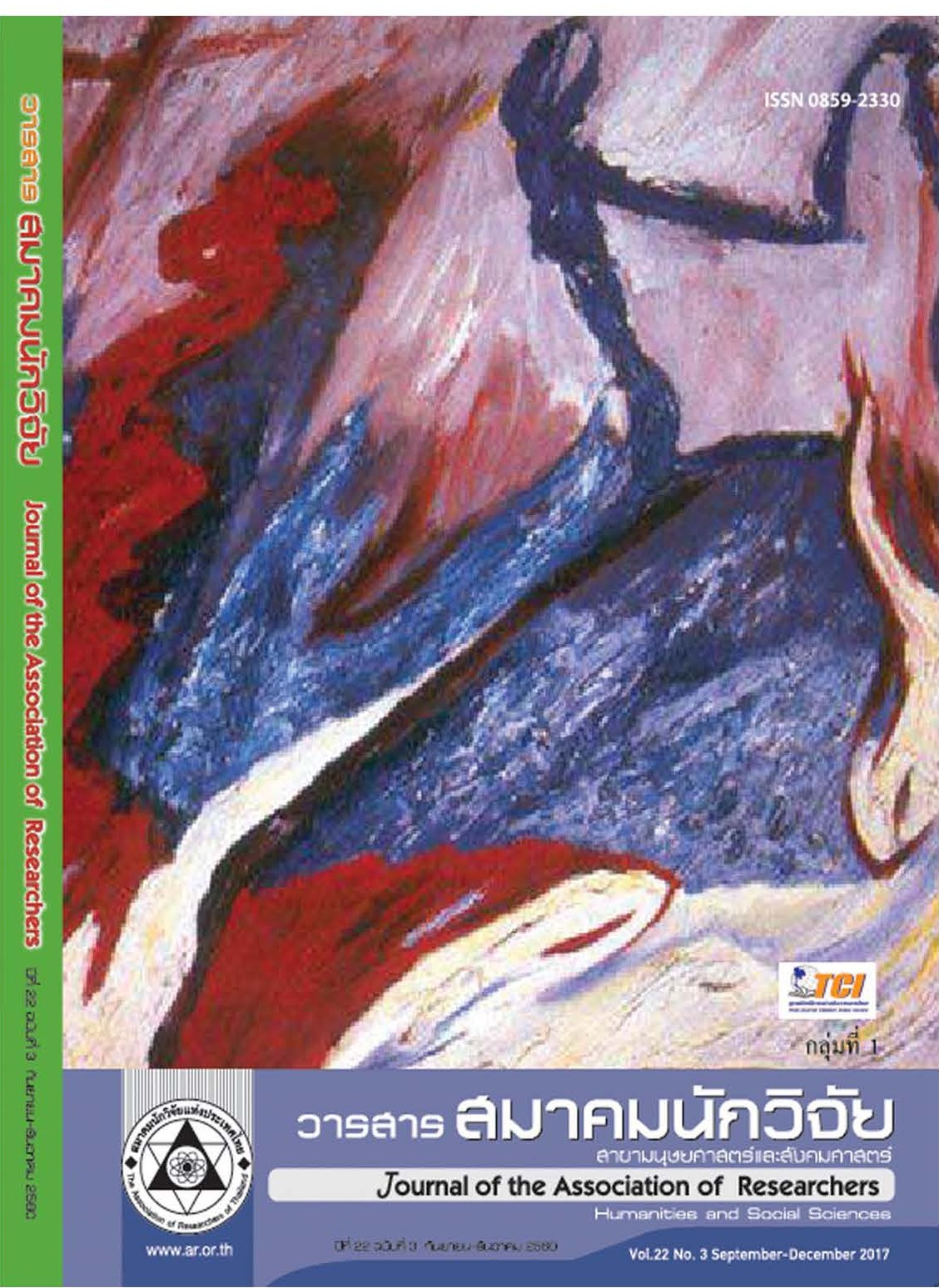Making Use of Social Niche to Establish the Connectedness of Community Garbage Disposal and Wastewater Treatment Activities after Participating in Academic Services of The King's Royally Initiated Laem Phak Bia Environmental Research Development Project
Main Article Content
Abstract
The objectives of this research were 1) to study the social niche of academic service's adopters in community garbagedisposal and wastewater treatment activities of The King's Royally Initiated Laem Phak Bia Environmental Research Development Project; 2) to investigate social niche in order to create the continuing in community garbagedisposal and wastewater treatment activities after participating in academic services; and 3) to create persistent model after involving in this academic services. The study samples obtained by systematic random sampling, consisted of 129 organizations. The data were collected by questionnaires which were tested by descriptive statistics including percentage, mean, stan dard deviation. The analytical statistics scrutinized by the stepwise multiple regression analysis with the statistical significant at .05.
Research results indicated that the overall social niches influencing the enduring of garbage disposal and wastewater treatment activities entailed budgetary readiness, technological and innovation factors, bureaucracy cultural organization, policy readiness, and leader enthusiasm respectively.
Article Details
บทความที่ปรากฏในวารสารนี้ เป็นความรับผิดชอบของผู้เขียน ซึ่งสมาคมนักวิจัยไม่จำเป็นต้องเห็นด้วยเสมอไป การนำเสนอผลงานวิจัยและบทความในวารสารนี้ไปเผยแพร่สามารถกระทำได้ โดยระบุแหล่งอ้างอิงจาก "วารสารสมาคมนักวิจัย"
References
Hameed, Mumtaz. And Steve Counsell, and Stephen Swift. 2012. "A Conceptual Model for Process IT Innovation Adoption in Organizations" in the Journal of Engineer Technological Management. 19: 358-390.
Head, L. 2010. "Cultural Ecology: Adaptation - Retrofitting a Concept?". Progress in Human Geography. 34:2: 234-242.
Laland, N. K., J.R. Kendal and R.B. Gillian.2007. "The Niche Construction Perspective: Implication for evolution and Human Behavior". Journal of Evolutionary Psychology. 5: 51-56.
Morabito, M. 2010. "Understanding Community Policing as an Innovation: Patterns of Adoption". Crime & Delinquency. 56 (4):564-587.
Popielarz, P., and N. Zachary. 2007. "The Niche as a Theoretical Tool" Annual Review of Sociology. 33.
Rahmawati, Y., C. Utomo, N. Anwar, P. Setijanti, and C. Nurcahyo. 2014. "An Empirical Model for Successful Collaborative Design towards Sustainable Project Development". Journal of Sustainable Development. 7:2
Robbins, Steph, and Timothy Judge. 2014. Essentials of Organizational Behavior. 12th edition. Boston: Pearson.
Rubin, Irene. 2006. "Budgeting" in Peter, Guy, and Jon Pierre. Handbook of Public Policy. London: Sage Publications.
Shedlovska, M. 2013. "The Conceptual Model for Environmental Consciousness Measurement". Economics. 6: 1: 78-88.
Sherif, Mostafa, and Tarek Khalil 2007. Management of Technology: New Directions in Technology Management. Amsterdam: ELSEVIER.
Taylor, J.B. 1997. Niches and Practice: Extending the Ecological Perspective. In Saleebey, D. The Strengths Perspective in Social Work Practice. New York: Longman.


